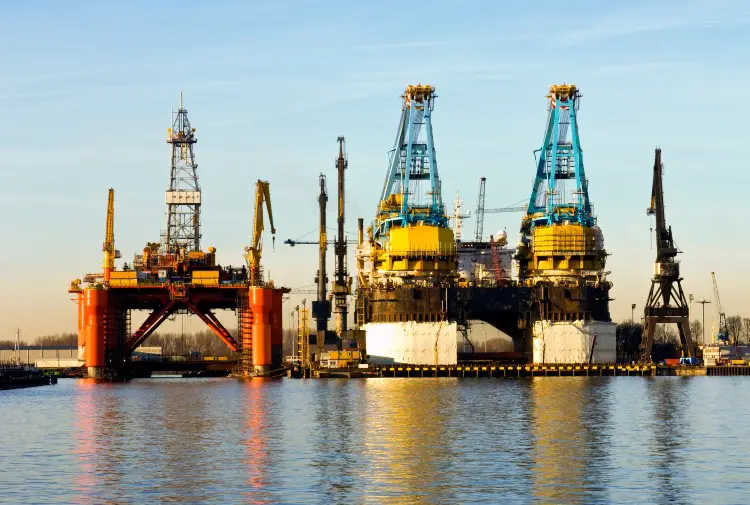
Maritime and offshore workers understand the risks that they take on every day that they perform their job duties. When an accident or other incident leaves them injured to any extent, they deserve to be supported.
Unfortunately, the law surrounding these claims can be particularly complex. Additionally, employers and insurance companies may provide resistance when it comes time to pay out claims.
If you are unsure about your legal rights after a maritime accident leaves you or a loved one with injuries or worse, contact our team for a free legal consultation. We are a law firm composed of slip and fall lawyers, workers' comp attorneys, and more.
A worker injured while on a ship, oil rig, or at a port or harbor can be entitled to compensation. Yet, knowing what your rights are is imperative. This is because filing a claim for maritime injuries is often more complicated than regular workers’ comp claims.
Maritime law governs the liability of people injured in maritime and offshore accidents. Personal injury victims in the maritime industry have multiple options for recovering compensation, and the best one for you will depend on the extent of the injury and the financial burden resulting from it.

New Jersey possesses some of the busiest ports in the entire country. While this provides thousands of jobs for New Jersey residents, it also makes these same workers vulnerable to work-related injuries and death. The ports where maritime workers are most often injured include, among others:
Depending on the nature of employment and work setting, the victim of a maritime accident may be able to file one or another type of claim. As mentioned previously, maritime injury claims are very particular, so only specific lines of work are eligible for specific claims. Contact our law firm now to learn about which specific claim may provide you or a loved one with your deserved compensation.
Longshore and Harbor Workers’ Compensation Act Claim (LHWCA) - persons employed in harbors, ports, docks, or other on-shore positions may be eligible for LHWCA claims.
Jones Act Compensation Claim - Injured seamen are entitled to seek workers' compensation under the Jones Act. Due to a work injury, they may seek compensation from the employer or insurance coverage provided by the employer. An action under the Jones Act usually requires liability to be established. Jones Act also provides that seamen can sue their employer directly if an unseaworthy vessel caused their injuries or death.
Death on the High Seas Act (DOHSA) Claim - DOSHA claims allow surviving family members to claim compensation when their loved one dies more than 3 miles off the coast of the United States.
The maritime and offshore industries regularly expose workers to a variety of hazards. Many of them work long hours in unforgiving and unpredictable weather that can take a turn for the worst and cause an accident.
Furthermore, maritime can be hurt by other tools of the trade. For example, heavy machinery such as cranes is often present on vessels. Yet again, weather can turn these tools of the trade into deadly weapons. Poor training can also lead a crane operator to inadvertently injure other crewmen. And while it is rare, deliberate actions have also been found to have been the cause of maritime injuries in the past.
Additional causes of maritime injury include unseaworthy vessels, gasoline explosions, collisions with other vessels or docks, onboard fires, and capsizings.
After an offshore accident takes place, it is often recommended to hire an offshore injury lawyer as soon as possible. This is because legal counsel can prevent you from committing mistakes that would ultimately lead to a worse result for your case down the road.
Additionally, there is often evidence that must be gathered before a claim can even be filed. With the passing of time, evidence can become lost or be destroyed and this would directly impact the outcome of your claim.
It’s best to schedule an initial consultation as soon after your injury as possible. Our maritime injury firm offers free consultations, so you can learn more about your legal options with no obligation. If we determine that you need legal counsel for your claim, you’ll only be required to pay as a small percentage of your payout if and when we help you secure financial compensation.
There is a fast-paced litigation process for maritime injury claims. There is a misconception that employers and insurance companies will protect the interests of injured maritime workers, but this is not always true. It is important to remember that insurance providers are profit-maximizing firms that earn profits if they're able to decrease or deny claims. Towards this goal, they will often hire the most experienced insurance adjusters they can find.
A maritime injury lawyer can help you increase the chances of recovering the maximum amount of compensation given your circumstances. They can also help you receive benefits during your unemployment period and remuneration for medical expenses, among other damages.
Contact us now for a free legal consultation. We only accept cases on contingency, so unless we secure compensation on your behalf, you will not owe us anything in legal fees.